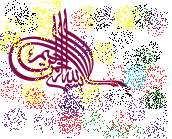Benefits of Becoming a Muslim
1. As far as the Creator (whose proper name is Allah) is concerned, you will be able to identify Him and get to know Him, His role and your relationship to His names, you will be able to communicate with Him any time, 24 hours a day, throughout the whole year. As a result of this category, you will be able to know your origin, your roots and the wisdom as to why you are on this planet. You will be able to have good answers to the questions why, how, when, where, what and other philosophical questions. 2. As a result of the first benefit, your loyalty, allegiance, and obedience will be to the Creator himself. You will transcend yourself from all types of allegiance for this world. This means that if there is a conflict of interest between your boss, your job, your government, your system or any worldly relationship with the Creator, you will undoubtedly put your trust in Allah, the Creator of the universe. You will follow Him before you follow anyone else.
3. As a result of the second benefit, you will be able to acquire peace, harmony, tranquility and happiness within yourself, with your family, with people of the world, with the environment and with the universe. One has to remember that the source of peace is Allah, and one of his beautiful names is that He is The Peace.
4. As an endorsement to the third benefit, you will get rid of the extra electrostatic charges from your brain and the central nervous system by performing the daily Salah. Through Salah, you are to prostrate by putting your forehead to the floor; and as such are grounding yourself, and you are discharging these extra charges into the ground. As a result of this act, you will get rid of many of the neurological diseases from your body.
5. As a result of the fourth benefit, you will acquire a pleasant personality. You will be friendly and amicable. You would not need to drink alcohol, to use drugs or to get involved in vulgarity or immorality.
6. Through the experience of fasting in Islam, you will be able to have self-control, self-restraint, self-discipline, self-education, self-evaluation, and self-obedience to Allah the Creator. You undoubtedly will be able to improve health, personality, character, and behavior.
7. As a result of the sixth benefit, you will be able to control your lusts, selfishness, desires, greed, ego, and conceitedness.
8. Another side reaction of the sixth and seventh benefits is that you will be generous and hospitable; you will try to purify yourself and your mistakes by sharing your happiness and your wealth with those who are less fortunate than you. Your rewards will manifold, compounded daily until the Day of Judgment.
9. By performing pilgrimage to Makkah, you will transcend yourself from being nationalistic, sectarian, or denominational into being universal. You will be part and an essential constituent of the rainbow of Islam. You will be also part of the brotherhood of Islam with those who already submitted themselves to the Creator. At the same time, you will get rid of any inferiority or superiority complexes. You will also find yourself in synchrony and harmony with all the prophets and messengers of Allah since the creation of Adam and Eve until the last final messenger to mankind, prophet Muhammad (pbuh). While in Makkah, you will be able to visit the places of revelation of the Quran as well as the places visited by prophet Abraham and members of his family such as Hagar and Ishmael. You will visit the place where the first astronauts, Adam and Eve landed on earth.
10. In becoming a Muslim, you will do your best to stop all types of exploitations in all their forms: economic, biological, mental, spiritual, psychological, political, etc.. You will also work to liberate people and give them freedom of worship, freedom of speech, and freedom of expression. You will be a leader and help lead people to peace, tranquility and happiness.
11. In accepting Islam, you will help to reduce all types of social ills in the society: juvenile delinquency, child abuse, domestic abuse, incest, homosexuality, sexual promiscuity, premarital relationships, extramarital relationships, and other vices.
12. As a result of the eleventh benefit, you will reduce and eliminate venereal diseases, AIDS, and other diseases of similar nature in the society.
13. Finally, when you die, you will die at peace. You will have a happy life in the grave and later, eternal happiness. Angels at the time of death will comfort you. They will also show you your place in paradise. On the Day of Judgment, you will be able to see and meet all the prophets and messengers of God to mankind including Noah, Abraham, Moses, Jesus, and Muhammad. You will be able to see and meet any and all of your friends and relatives. You will live an eternal life of bliss in paradise.
Reflections:
The benefits mentioned above and many more cannot be purchased with money anywhere in the world. No one is to sell them to you or to advertise them on TV. You have to take the initiative yourself and try to acquire them by accepting Islam first and then by practicing its teachings. You should be honest with yourself, sincere, and truthful to the Creator. You should try wholeheartedly to practice what you believe, regardless of whether someone else is good or not While seeking happiness is a must, it should not be measured with other people's standards or with material gains. Happiness is from its potential to its kinetic forms. People around you should feel your happiness as well as benefit from you.
Are you ready to accept this challenge today? Remember, tomorrow may not come, and it will be too late?
By: Ahmad H. Sakr, Ph.D
Source: www.islamdoor.com







